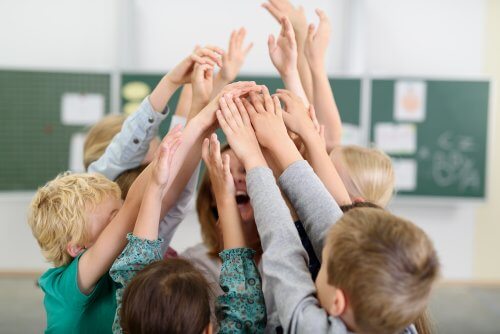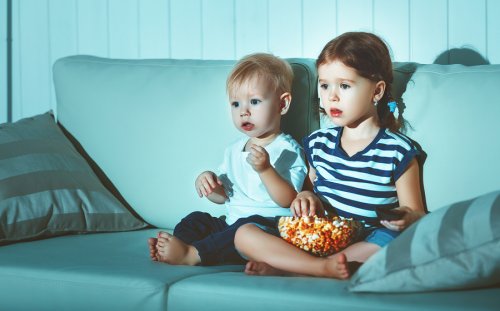How Does Context Affect a Child's Educational Level?

The environment in which children develop has a direct and significant effect on their cognitive development. The influence that “context” has on a child’s educational level is evident, since it encompasses all the ways in which children interact with society.
This includes family, friends, social outings, advertising, what they read, what they see, and the ideologies that surround them. Everything that makes up the cultural context in which they grow up, and the events of their lives, will have consequences.
How does context affect a child’s educational level?
Family as primary context
Children’s first contact with society occurs through their families, the people who will shape how they’re structured as individuals.
Whether you received enough love in early childhood, you were heard and valued, you grew up with emotional or material deficiencies, or you were a victim of abuse, all of these factors will influence your ability to learn new things.
A family’s contributions:
- Basic education
- Behavioral frameworks via established standards
- Emotional security
Children learn social skills from the nuclear family. As such, when they enter the educational system, they arrive already having absorbed a lot of information.
Children’s constructed self-images have to do with what they observe around them and the way in which those around them resolve situations.
Context as an ally
Children’s intellectual development stems from the social environments in which they grow up, which help them grow individually and in relation to others. Independently of whether the context is more or less positive, if we understand it in terms of our educational systems, it will be much simpler to ensure that they don’t get discouraged.

The media
When talking about the role that context plays in a child’s educational level, we have to mention the media. This is because it occupies a significant part of a child’s attention, and constantly bombards us as a society with messages in all its forms.
Television is adept at capturing children’s attention, and as such has a great deal of influence over them. It’s easy to observe what is being communicated. Sometimes they’re not even aware of what they’re seeing, but the message is clear.
In addition, their consumption of television tends to grow over time. Children take what they learn from TV for granted, especially at an early age. This creates another type of context within their cognitive development.
New technologies
New technologies are unseating traditional media and changing current teaching processes. Today’s generations require interactive aspects, speed and technological support. It all has to do with the context they’ve grown up in and the information they’ve learned in it.

We shouldn’t overlook these factors. Instead, it’s a good idea to take advantage of them, to become aware that they’re part of the children’s context, and to use them in our favor.
Generally speaking, family and society create the context in which our children grow up. Their influence on a child’s educational level is evident, so it’s important to create new models that account for this. It provides a valuable framework for how each student is doing.
All cited sources were thoroughly reviewed by our team to ensure their quality, reliability, currency, and validity. The bibliography of this article was considered reliable and of academic or scientific accuracy.
- Fernández-Berrocal, P., & Ruiz Aranda, D. (2017). La Inteligencia emocional en la Educación. Electronic Journal of Research in Education Psychology. https://doi.org/10.25115/ejrep.v6i15.1289
- Gerardo León Guerrero. (2004). La educación en el contexto de la globalización. Revista Historia de La Educación.
- Manzano, A., & Freijo, E. B. A. (2008). Contexto familiar, superdotación, talento y altas capacidades. Anuario de psicología/The UB Journal of psychology, 289-309.
- Marino Roberto Aparici. (2005). Medios de comunicación y educación. Revista de educación, ISSN 0034-8082, No338, 2005, págs. 85-100.
- VanTassel-Baska, J. (1989). The role of the family in the success of disadvantaged gifted learners. Journal for the Education of the Gifted, 13(1), 22-36.
This text is provided for informational purposes only and does not replace consultation with a professional. If in doubt, consult your specialist.








